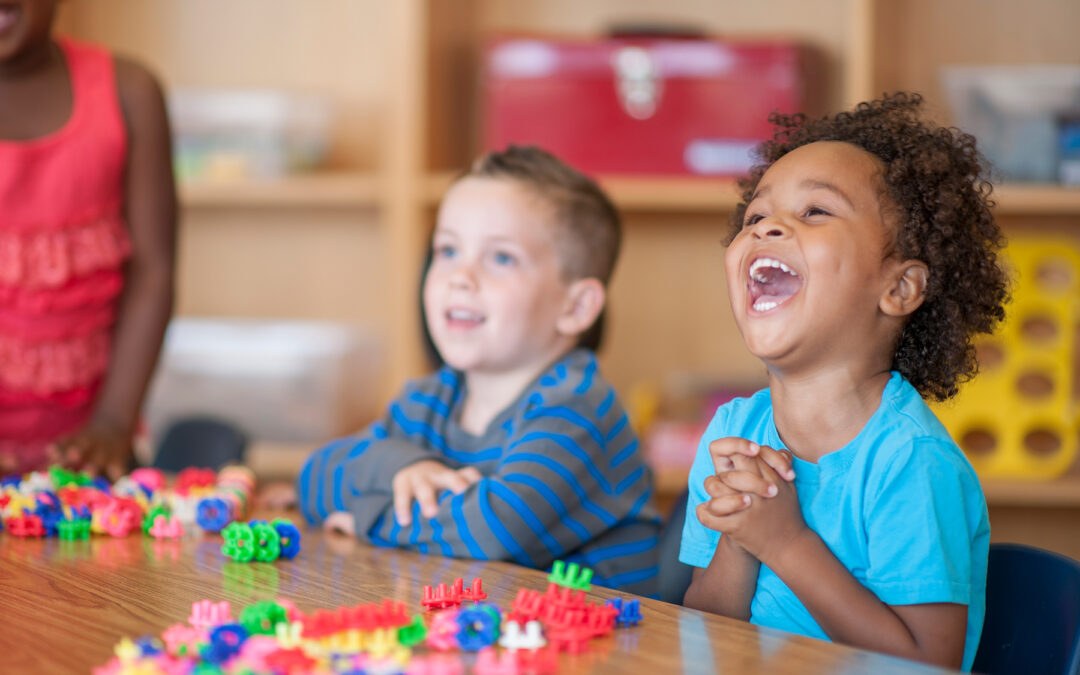Is your little one at the age where you have started thinking about preschool, but are still unsure if they are ready? It truly is a big decision for you and your child on whether or not to send them, and it shouldn’t be taken lightly. Since every child is different, it can be hard to know if your child is ready to excel in early childhood schooling. We have comprised this nice little guide to help you know exactly where your child is at, if they are ready to attend preschool this year, or if they need another year at home first.
Rising Stride offers programs for all children ages 0-5 and can help almost every child find a place to succeed. Hopefully, this guide will help you determine the readiness of your child and feel more confident in your decision!
While many preschools begin taking children while they are still toddlers, this does not mean you and your child are ready. You may want to ensure your child is emotionally, socially, physically, and cognitively developed enough to attend an educational program with other children.
Read our latest Blog to see if your child is ready to begin preschool.
Preschool Readiness Checklist
We have compiled 10 of the most important skills and milestones your child should be comfortable with before attending preschool. If your little guy doesn’t check every box, don’t panic! This is just a soft guideline for you to grasp a better understanding of where your child will among their peers. These skillsets cover categories including emotional development, attention and independence, language, art, and math.
- Ability to recognize other people’s emotions
- Can take turns and share toys
- Listen to simple instructions
- Can sit still and quietly during story time
- Can be separate from you for a few hours
- Enjoys doing things independently sometimes, like getting dressed on their own
- Ability to recognize some shapes and colors
- Recognizes some letters and can recite the alphabet
- Expresses thoughts and needs appropriately
- Can independently say their full name
- Counts to five
- Draws with crayons or pencils
Physical Independence
Children require some sense of independence to get through preschool. For example, most preschools expect your child to be potty-trained already. Your child must also be able to wash their hands and eat without major assistance.
Part of the need for this physical independence is so students can work on projects without the need for constant assistance. Children are good candidates for preschool if they often concentrate on arts, crafts, puzzles, and other activities on their own.
Additionally, the children best suited for preschool are those who do not need to take many naps throughout the day.
Emotional Independence
Children who have spent some time away from their parents are better prepared for preschool in many cases. A child should be used to spending time away from parents and with other family members or adults to make being away from parents easier.
Your child should also be old enough to manage a day of moving from task to task without disrupting other students. Many children experience difficulty moving from task to another, so you may need to practice this skill at home.
Social Skills
Preschool activities involve a lot of time with groups and playing in teams. Class participation is critical for children in school settings. Children in preschool may also report having a better time at preschool when they have friends they can play with during recess.
Children with the proper social skills will not automatically move toward hitting and biting when they are upset with other children. While children are more ruled by emotions at this age, some self-control is critical for children who will be spending time in a classroom.
Routine
Preschool involves heavy reliance on a daily schedule. Children who are used to daily routines will feel comfortable falling in line at school. You can practice building a strong routine at home by moving from one type of task to the next. You might also plan lunches around the time the future preschool plans its lunch.
Excitement
Instead of building anxiety around going to preschool, do your best to promote excitement instead. Take time to meet the child’s teacher ahead of time and tour the facilities. Your child can also participate in preparations for going to school, like putting together a backpack or lunchbox.
When your child sees that you are excited about him or her going to school, they will be more likely to feel excitement rather than fear.
Do They Want to Play With Other Kids?
Have you noticed your child’s behavior when you are at a playground and there are other children present? Does your kiddo typically feel comfortable playing with or among the other kids? Or do they grab onto your legs for dear life? Either scenario is a good indicator of how their first days of preschool will go. But, if they are shyer it doesn’t mean they won’t thrive! It could be really good for them to have more social interactions!
Communication
Children who are a good fit for preschool know how to communicate their needs. These young people can express when they need to go to the bathroom or if they are hurt.
At preschool, a child also needs to respond to communication, including following instructions. A child must be able to listen to the teacher and understand the role adults play during instruction periods.
If your child isn’t ready for preschool, don’t despair. Children can still reap the benefits of preschool even if they attend later. If your child is ready, however, identify programs in your area that would be a good fit for your child. Rising Stride Child Care Centers understands every parent’s struggle to select the perfect preschool and to determine the best time to send a child to preschool. Visit us today to learn more about our preschool programs.

